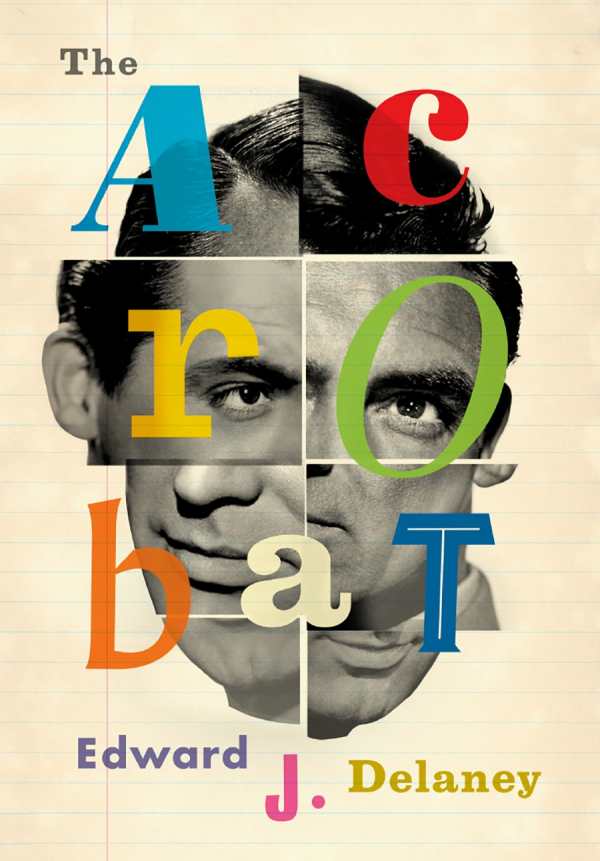The Acrobat
In Edward J. Delaney’s historical novel The Acrobat, Cary Grant is at the height of his career. He navigates reconciling his past with his present and turns an eye toward embracing his future.
Archie Leach dreamed of treading the boards, the surest way to escape his dreary home and stultifying school environment. He could not know then that he would become Cary Grant, star of the silver screen. Being “Cary Grant,” however, has taken a toll, and his usual ways of coping are no longer successful. Turning to the professionals, he starts psychiatric treatment to reveal and solidify the sense of self he had thought of as only accessible through his characters.
The novel reads like a short story collection. The self-contained chapters, each with their own title, follow the same format. They start with a memory-like scene that introduces the theme that informs the direction of the rest of the chapter; these include brotherhood and the meaning of success. The narrative then toggles between the past and the present. In the present (1959), Grant is in therapy using monitored LSD trips, preparing for new roles, and reminiscing about old ones. In the past (the early 1900s leading to 1959), Archie is a stagehand in theaters in England before coming to America with a pantomime troupe.
The broad strokes of Grant’s life, his upbringing, his career, and his relationships are familiar. Using these as touch points, the book settles into a balance of action and introspection, imagining the private events and conversations that led to public articles and falling outs. The intermingling of fiction with truth captures the essence of Grant as a Hollywood leading man, but also as just a man, with foibles, hopes, and fears.
The Acrobat is an artistic biographical novel about one of the greatest actors of all time.
Reviewed by
Dontaná McPherson-Joseph
Disclosure: This article is not an endorsement, but a review. The publisher of this book provided free copies of the book to have their book reviewed by a professional reviewer. No fee was paid by the publisher for this review. Foreword Reviews only recommends books that we love. Foreword Magazine, Inc. is disclosing this in accordance with the Federal Trade Commission’s 16 CFR, Part 255.

